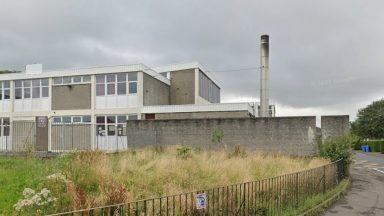A NHS health board failed to manage a patient’s pain after a severe fall days before their death.
The patient’s child lodged a complaint against NHS Lanarkshire about the care it provided after their parent was given inappropriate doses of oxycodone, an opioid painkiller.
The patient, who had a complex medical history, including chronic pain, was admitted to A&E three days after falling.
During their admission, they reported lower right-sided chest pain, associated with gradually increasing shortness of breath.
A CT scan showed the patient had multiple rib fractures and a flail segment – when a rib is fractured in two or more places and becomes detached from the rest of the chest wall.
The scan also showed they had a solid pooling of blood between the ribs.
The patient was treated in the Intensive Care Unit (ICU) for one week before being moved to the Medical High Dependency Unit (MHDU).
The ICU team reviewed them, and after falling unwell, they were transferred to intensive care again, where they died a few days later.
The patient’s child complained about the treatment their parent received during their admission to MHDU.
They complained about problems with their parent’s medication, pain management and nursing care, including issues around fluid and nutrition and not responding to alarms or adhering to observational guidelines.
The Scottish Public Service Ombudsman (SPSO) launched an investigation into the complaint.
After seeking advice from a consultant in critical care and a senior critical care nurse, SPSO found a number of failings in the patient’s pain management.
The failings included doses of sustained-release oxycodone being administered out with the appropriate dose intervals and an increase in the dose of oxycodone, which was “not clearly justified”.
The SPSO also found there was a lack of involvement of the acute pain service for ongoing support after they returned to the MDHU from ICU.
The watchdog also found that observations identifying deterioration of patients in acute settings were irregular, as well as evidence nursing staff failed to escalate appropriately.
Nursing records were found to be lacking in detail and there was no evidence of the patient receiving oral care.
The SPSO upheld the complaint regarding nursing care.
However, the watchdog said the response to the patient’s deterioration was “reasonable”.
The SPSO was critical of the board’s complaint handling, noting long delays and a failure to keep the patient’s child updated.
It added that NHS Lanarkshire’s own investigation did not identify failings picked up by its own investigation.
The SPSO ordered the health board to apologise for the failings found in the investigation, as well as review how patients with severe chest trauma are managed.
It said that in future, opioids should be administered strictly in accordance with relevant dose periods, adding that decisions to increase medication doses should be clinically justified.
Russell Coulthard, director of acute services at Lanarkshire NHS, said: “We appreciate this has been an extremely difficult time for the family and our sympathies remain with them.
“We fully accept the recommendations and have already written to the family offering our sincere apologies. The recommendations will be shared with staff to help avoid similar occurrences in future.”
Follow STV News on WhatsApp
Scan the QR code on your mobile device for all the latest news from around the country


 Sudok1 via iStock
Sudok1 via iStock
























